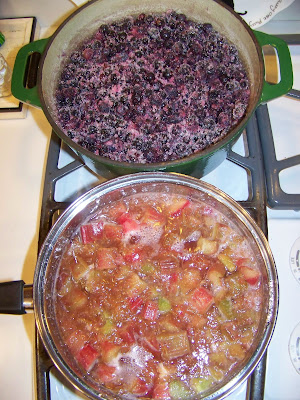
Not an entirely
cloudless night (see poem below), but still a fairly good picture of the moon, considering that I took it from my drive-way, with no special camera equipment other than a zoom lens.
I think it goes well with "The Night - Wind," a poem that reveals to us the mysterious, romantic mind of Emily Bronte. Musing upon the wind that wafts -- no
breathes! -- through an open window, she discerns more than just a rustling breeze or restless sigh: she hears a voice, a clear persuasive call. The wind implores her, and she's
"not too hard persuaded" (remember last month)!
Tonight, look out the window! Or go out in the backyard and try to photograph the moon! There will be Emily, floating through the woods behind your house, murmuring to the night wind!
The Night-Wind
In summer's mellow midnight,
A cloudless moon shone through
Our open parlour window,
And rose-trees wet with dew.
I sat in silent musing;
The soft wind waved my hair;
It told me heaven was glorious,
And sleeping earth was fair.
I needed not its breathing
To bring such thoughts to me;
But still it whispered lowly,
'How dark the woods would be!
'The thick leaves in my murmur
Are rustling like a dream,
And all their myriad voices
Instinct with spirit seem.'
I said, 'Go, gentle singer,
Thy wooing voice is kind:
But do not think its music
Has power to reach my mind.
'Play with the scented flower,
The young tree's supply bough,
And leave my human feelings
In their own course to flow.'
The wanderer would not heed me:
Its kiss grew warmer still:
'Oh Come!' it sighed so sweetly;
'I'll win thee 'gainst thy will.
'Were we not friends from childhood?
Have I not loved thee long?
As long as thou, the solemn night,
Whose silence wakes my song.
'And when thy heart is resting
Beneath the church-aisle stone,
I shall have time for mourning,
And thou for being alone.'
by
Emily Bronte (1818 - 1848)
British novelist and poet,
middle Brontë sister, between Charlotte & Anne
above poem published in 1850, in
Selections from the Literary Remains
of Emily and Anne Bronte






























